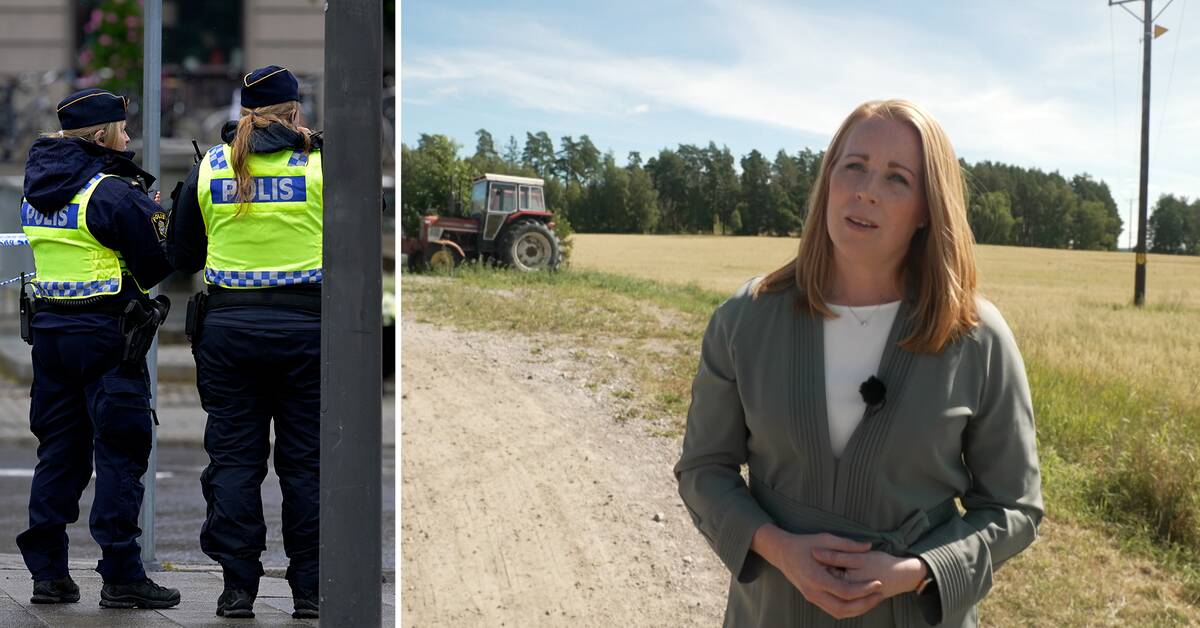On Tuesday, Center Party leader Annie Lööf went out to a farm outside Gnesta to present the party's new rural development policy.
Above all, two new proposals are highlighted: one billion for the police and better mobile coverage.
Wants to reopen closed police stations
During the next mandate, C wants to introduce a local police bill to encourage local presence according to Lööf.
Over the next four years, they want to invest the money in above all reopening closed police stations and strengthening the police presence throughout the country.
The party states that 200 police offices and stations have been closed since the turn of the millennium.
The problem is that there are not enough policemen, how are you going to solve that equation?
- It's about getting better working conditions to get more people to apply for police training.
Our proposal is about the fact that when the police authority grows, as it does, one of the main priorities must be increased local presence, she says.
Furthermore, they also want to appoint special investigators who focus on crime that is particularly common in rural areas: theft of agricultural equipment, animal rights-related crime and species protection crimes are some examples.
One billion for improved mobile coverage
Another billion will go towards improving mobile coverage in those parts of the country where the telecoms association believes there are too few customers to build mobile masts.
The party therefore wants to give one billion kroner annually for five years to municipalities, regions and organizations that want to build masts to improve coverage.
No increased taxes
C also presents a range of other rural initiatives that include farm sales of alcohol, a beach protection reform, more accessible care, enhanced road and rail maintenance.
Lööf states on Tuesday that it plans to pay for the reforms through "priorities" and the party emphasizes that it does not want to see any increased taxes.
- Sweden has one of the highest tax burdens in the world, it is above all about reprioritization, focusing on the core of welfare, she says.

